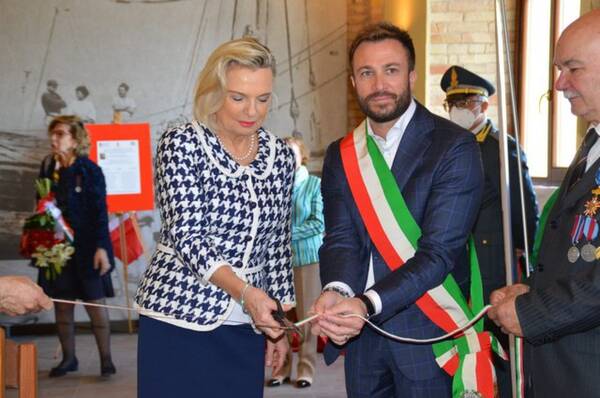Poland: the 2nd Anders's Army Corps on display in Giulianova
After Montecassino Battle, it freed Marche and Emilia-Romagna
27 April, 14:26The 2nd Polish Army Corps was founded in 1941 in the Soviet Union, made up of soldiers taken prisoner by Stalin and deported to Siberia after the aggression against Poland in 1939. Under the command of General Wladyslaw Anders and incorporated in the 8th British Army, the Polish 2nd Army Corps, the army was transferred to Italy at the end of 1943 to support the Allies along the Gustav Line.
The Polish soldiers were guided by the motto "For our and your freedom," in memory of the Italian-Polish collaboration of arms during the Risorgimento. After the conquest of Montecassino in May 1944, the Allies deployed the Poles on the Adriatic front, where they liberated numerous towns and cities in the Marche and Emilia-Romagna regions, including Ancona, Loreto, Pesaro, and Bologna.
The inauguration, organized by the historical researcher Walter De Berardinis in collaboration with the Biblioteca Civica 'Bindi', was attended, among others, by the director of the State Archives of Teramo, Ottavio Di Stanislao, the president of the Association of Families of Polish Fighters in Italy, Maurizio Nowak, the director of the Library and Civic Museums, Sirio Maria Pomante, and the children of Polish soldiers.
(ANSA).














